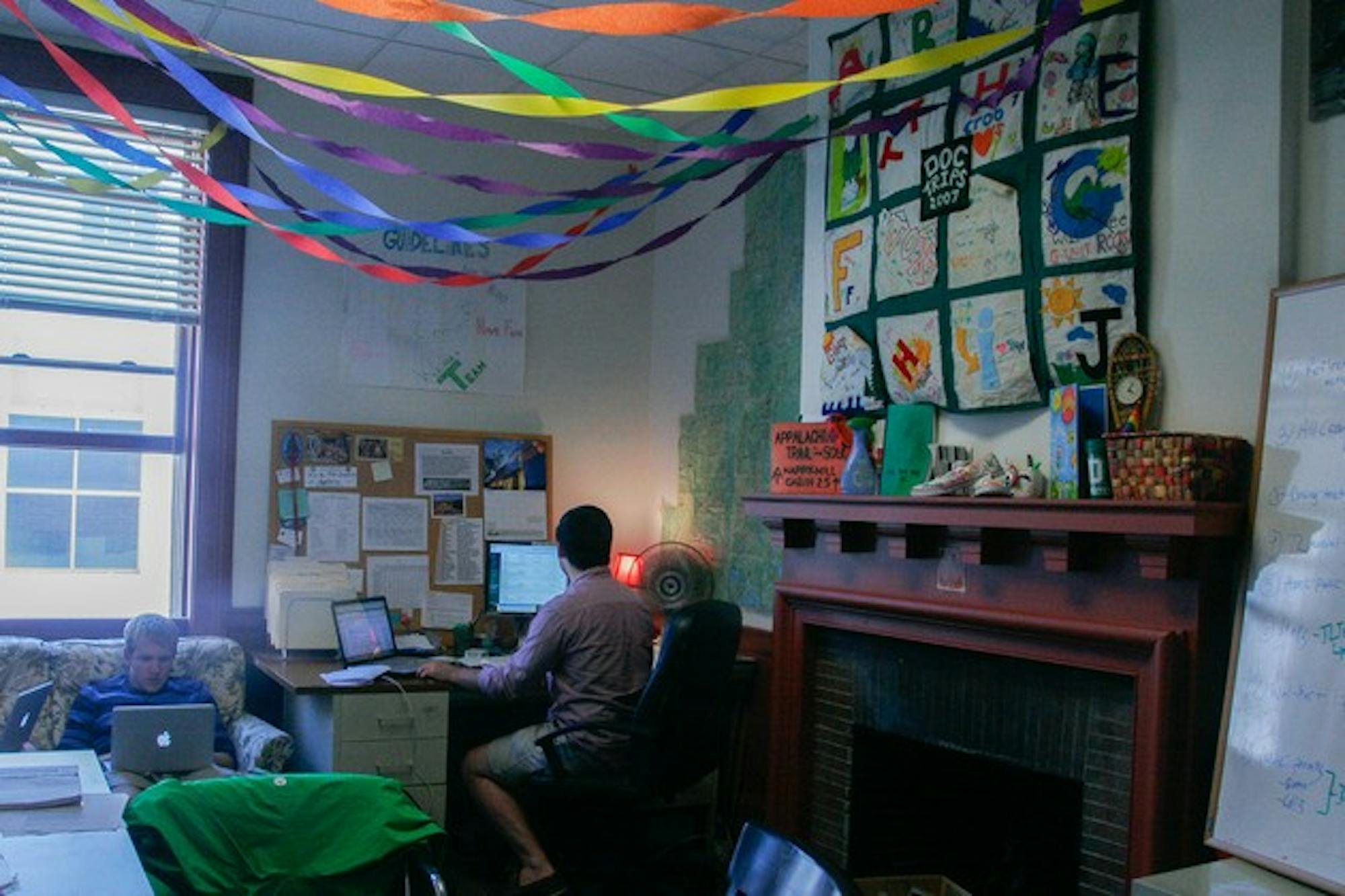This week, between six and 10 upperclassmen will be chosen to participate in the program, Trips director Chris O'Connell '13 said.
"The main goal for Connections this year is to provide students as they return from their DOC trip with a form of support and connection between the experience they had on Trips and the experiences that they will find on campus," O'Connell said.
The primary difference between Connections and last year's Connection Croo is that this summer's program will de-emphasize programming and instead focus on acting as a central resource by providing information to incoming freshmen, O'Connell said. To reflect this change, Connections members will be stationed in the Collis Center instead of in each freshman dormitory cluster.
Connections coordinator Brian McGahie '15 said that last year, Connection Croo focused too much on programming events, which resulted in unnecessary overlap with the Orientation Team's function on campus. This summer, the group will aim to work with Orientation Team as well as trip leaders to complement the existing orientation programs available.
Aaron Ellis '15, who was a member of Connections Croo last summer and will lead an organic farming trip this year, said the changes will likely make the program more effective. He said that last year's program did not achieve its purpose because it had no defined place on campus.
"It was pretty disorganized, it was a lot of us figuring out what we wanted the program to be and making it into that sort of thing," he said. "There was a lot of conflict with the other groups because they didn't really know who we were and trip leaders didn't really know who we were."
Ellis said that reducing the emphasis on programming will help Connections establish a defined role as an "intermediary group" working as a resource with other orientation teams.
Connections' link to the Trips program will likely make students feel more comfortable approaching the group for help, McGahie said. This will make it possible for Connections members to get to know students on an individual basis and to provide them with advice about the wide variety of programs available on campus.
"We really want the freshmen to know that when they're here, they can have their own experience," McGahie said. "There's not a single experience they should be funneled into."
Assistant Trips director Anneliesse Duncan '13 said that because Connections is a part of the Trips program, members can make the best of a "preexisting bond" to help freshmen transition more fluidly into life on campus. Duncan said that she hit a low point after the end of her freshman trip because she did not know what to do or whom to interact with on campus before classes started.
"Connections is trying to eliminate that post-Trips funk and give people a way to find the things that they want to do by interacting with a program that is still really familiar," she said.
O'Connell said the relationship between trip leaders and Connections members will be collaborative, and the two will work together to fulfill different student needs. Trip leaders will be there to form strong relationship, while Connections will exist more as a resource for informing students about opportunities that trip leaders may not know about.
When trip leaders are unavailable or do not have the resources to answer questions that come up, students will be able to come to Connections.
"Ideally, trip leaders are going to be that really concrete resource that lasts throughout the year and years that trippees and trip leaders are together on this campus," Duncan said. "Connections will definitely be that immediate resource when people get back on campus."
Molly Chodakewitz '15, who will lead her second moderate hiking trip this summer, said that Connections can help trip leaders continue the spirit of Trips after students leave the woods and start their lives on campus.
"The most important thing they can do is make sure that the welcoming, inclusive feeling of Trips doesn't go away when you get back to campus," she said. "You have so much fun on Trips and sometimes you get back to [Pre-Orientation] and you don't know anyone. Connections has a lot of potential to make the transition to college fun and easy for the freshmen."




